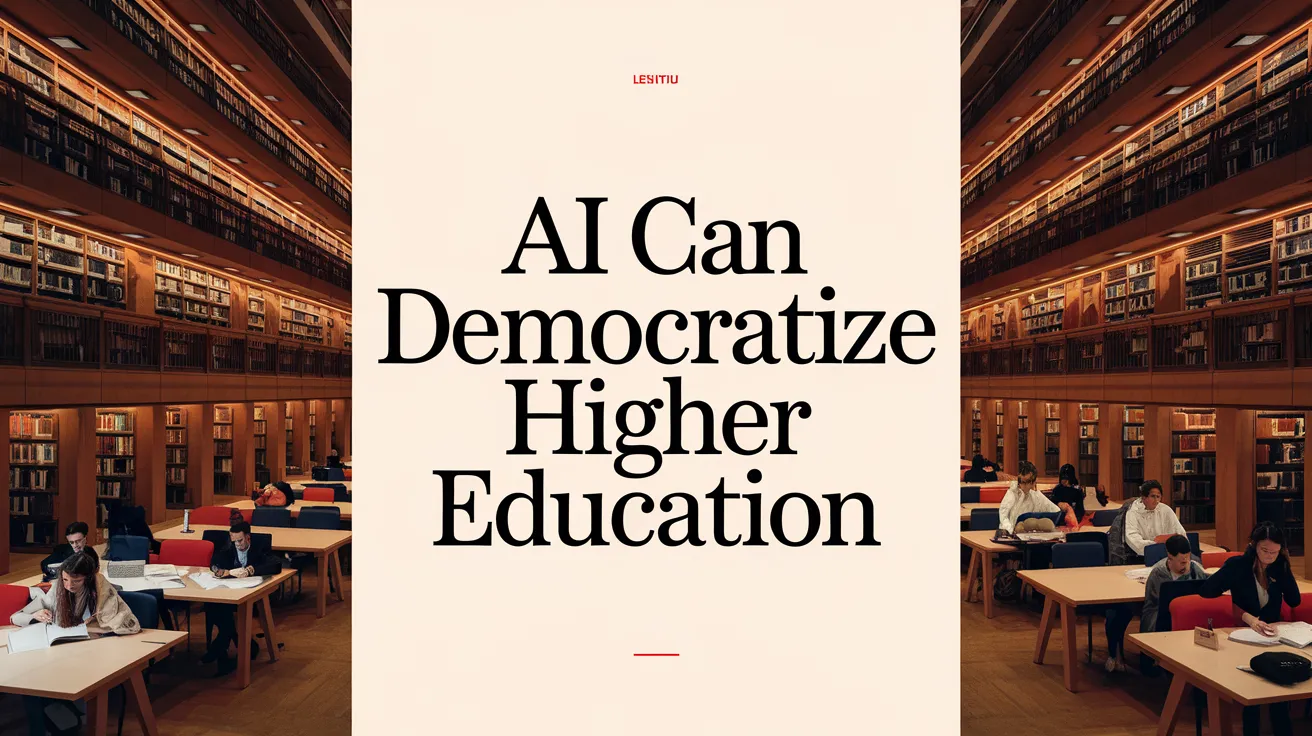AI Can Democratize Higher Education

As the new academic year approaches, the conversation surrounding artificial intelligence (AI) in education grows more urgent. Since the introduction of Chat GPT, universities have witnessed significant changes, with AI rapidly becoming a standard tool among students and faculty alike. From the perspective of Trinity College Dublin’s chief academic officer, the integration of AI into the educational landscape presents both opportunities and challenges, prompting a reevaluation of traditional educational models.
AI’s Role in Transforming Higher Education
AI opens the door for democratizing higher education, traditionally viewed as both a passport for opportunity and a locked gate for many. While AI will not eradicate social inequities overnight, it can facilitate significant strides toward inclusivity and accessibility. The responsible application of AI aligns with broader educational reforms such as the Bologna Process and Ireland’s National AI Strategy.
By utilizing AI, institutions can broaden their understanding of who is considered a student, promoting lifelong learning initiatives and increasing educational opportunities for a diverse range of learners. Ireland is already making strides in this area with programs like Springboard+ and the Human Capital Initiative, yet the demand for higher education continues to outpace supply.
Personalized Learning and Accessibility
AI has the potential to revolutionize personalized learning by providing tailored tutoring at scale. Imagine a future where students receive individualized mentoring that far exceeds the capabilities of an overstretched faculty. Additionally, AI-driven automated transcription and translation tools can enhance learning outcomes for students with disabilities or those mastering a second language.
Moreover, researchers are employing AI to accelerate processes such as literature reviews and data filtration. AI algorithms can optimize scheduling, grading efficiency, and immediate responses to student inquiries through chatbots, freeing up valuable time for staff that can then be redirected toward more personalized student support.
Ethical Considerations and Risks
However, the embrace of AI in education is not without its pitfalls. Over-reliance on generative AI tools poses the risk of blurring the lines between original thought and machine-generated content, which could compromise academic integrity. Most universities have established guidelines that mandate responsible and transparent AI use, but challenges remain.
Data privacy is paramount; educators and students must appreciate the risks involved in sharing sensitive information with AI platforms. There’s also the threat that biased training data could perpetuate societal inequities, accentuating issues of gender and racial bias while presenting a false sense of objectivity.
Mitigation strategies must focus on protecting data integrity and understanding its implications. Institutions like Trinity’s AI Accountability Lab are essential for navigating these ethical challenges.
A Call for Thoughtful Usage of AI
Universities must not simply treat AI as another technological advancement but recognize its potential to reshape the essence of education. As learning becomes more personalized and knowledge is generated on demand, the uniquely human elements—creativity, judgment, and empathy—will only gain importance.
This moment invites universities to lead critical discussions about how AI can enhance access rather than deepen existing divides. Questions about privacy, integrity, and equipping both staff and students to leverage AI must form the foundation of how educational institutions navigate this new landscape.
Inevitably, the focus on AI implementation cannot solely revolve around improving efficiency or mitigating concerns over academic honesty. Engaging with AI raises substantial questions about democracy, equity, and the future of knowledge itself. The opportunity to embrace this transformative technology lies before us. Let’s seize it with both caution and enthusiasm.
This article was published in the Irish Times on 25 August 2025.